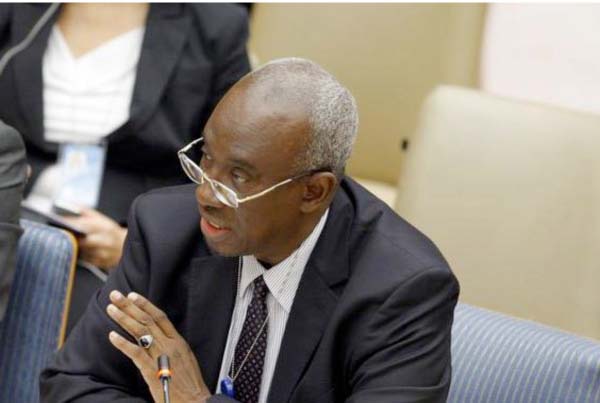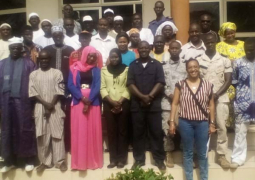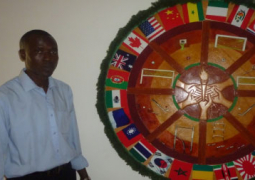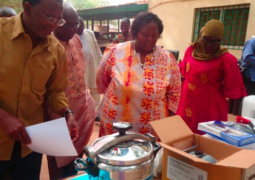
Chief
Justice Hassan B Jallow has pointed out that transition to a state of democracy
based on respect for the rule of law, human rights and good governance is “by
no means an easy task”.
He
said even though it is a task which could and must be accomplished, it is full
of challenges.
The
Chief Justice made this remark at the opening of a three-day national
stakeholders conference on justice and human rights yesterday at Kairaba Beach
Hotel in Kololi.
The
conference was organised by the Ministry of Justice in collaboration with the
United Nations Development Programme (UNDP) and other international
organisations on the theme ‘Addressing the Past for a Better Gambia’.
The
gathering brought together many eminent experts whose experience could provide
useful guidance to The Gambia government, the people and specific stakeholders
in the choice of options available to address the challenges.
Justice
Jallow said the Gambian people have chosen the path of democracy, the rule of
law, respect for human rights and good governance in its broadest sense as the
gateway to peace and progress.
He
revealed that the transition to the transformation of the community has already
begun with the significant support and assistance of the international
community.
It
is expected that at the end of the conference, Gambian policymakers would be
better equipped to formulate appropriate policies to enable the government to
make some of the choices it needs to make to move to a better future for all.
The
representative of the United Nations High Commissioner for Human Rights, Andrea
Ori, said the conference is a significant milestone on the pathway to justice
and reconciliation in The Gambia.
He
paid tribute to the people who lost their lives to bring about the dramatic
changes to life in The Gambia, after 22 years.
Mr
Andrea noted that the wall of fear and silence has been broken and the desire
and determination of people to claim their rights regardless of personal
sacrifices and pain is being proven on a daily basis.
He
said that the relationship between the state and its people must be built on
the rule of law and respect for human rights.
He
pointed out that transitional justice is a multi-dimensional process and
consists of both judicial and non-judicial processes.
The
UN diplomat said during the establishment of transitional justice processes, it
was particularly important that the state fulfill its duty to undertake
effective investigations and prosecutions of violations of human rights and
serious violations of international humanitarian law which constitute crimes
under international law.
“Amnesties
could undermine a state’s obligation to investigate and prosecute crimes,” he
said, adding that according to international law and UN policy, amnesties are
unacceptable if they prevent the prosecution of individuals who are criminally
responsible for genocide, crimes against humanity, war crimes and other gross
violations of human rights.
Mr
Andrea reiterated the United Nations High Commissioner for Human Rights
readiness to support and accompany The Gambia in this important and historical
undertaking.
The
UN resident coordinator who is also the UNDP resident representative, Ade
Lekoedje, said the UN system would continue to engage with The Gambia
government and other key national stakeholders in the pursuit of good
governance and sustainable development.
She
commended the Ministry of Justice for taking the initiative for convening the
stakeholders conference on justice and human rights and for ensuring that key
institutions, organizations, groups and communities are represented.
Mrs
Lekoedje also thanked the Attorney General and Minister of Justice for
Sierra-Leone, Joseph Kamara, for attending the conference as special guests.
She
said as a citizen of Sierra-Leone, a country that has gone through a difficult
past, and with a strong experience as a prosecutor including with the Special
Court of Sierra-Leone, Hon. Kamara has unique insights into the issues that
would be deliberated on and that she looks forward to drawing on this
invaluable experience.
Mrs
Lekoedje said that the new government has placed a high priority on improving
the quality and dispensation of justice in The Gambia.
Other
speakers included the Minister of Justice, Abubacarr Tambadou and his
Sierra-Leonean counterpart, Joseph Fitzgerald Kamara.




